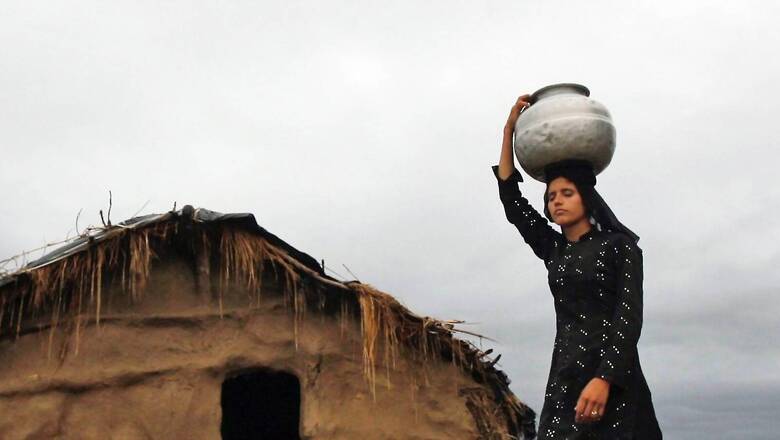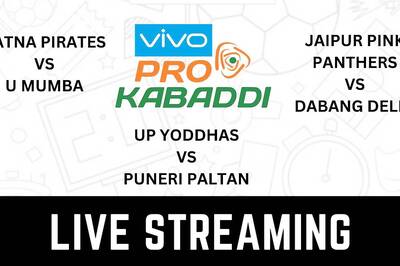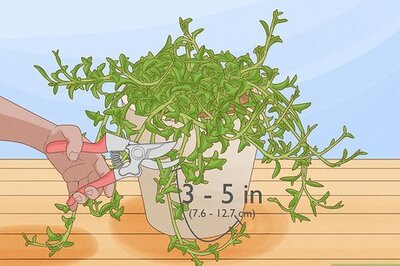
views
Recently, while I was in Jammu city, I heard about the birth anniversary of Guru Ravidas, a well-known Dalit saint, poet and spiritual leader of the Hindu & Dalit Sikh community of North India. I also visited a nearby local Ravidas temple and paid my respect to Guru Ravidas, whose egalitarian anti-caste teachings had a great and profound impact on the evolution of the Sikh faith. I talked to the local Dalit Ravidasia community of Jammu and that gave me an idea that it is high time that Jammu and Kashmir state develops its own pan J&K secular and cross-cultural alliance of its subaltern marginalised communities.
The union territory of Jammu & Kashmir is uniquely placed in India as it is home to diverse communities of Dalits, Tribals and Pasmanda Caste Muslims from Hindu, Muslim, Sikh & Christian communities, who have so far been facing caste and racial discrimination in different parts of Jammu & Kashmir, separately without putting together a united pan J&K anti-caste front, which could not only help empower marginalised communities of Jammu and Kashmir but can also set an example of a national, secular, anti-caste movement.
The union territory of Jammu and Kashmir has a vast population of Hindu, Sikh & Christian Dalits in the Jammu region and Pasmanda Caste Muslims in Kashmir valley as well as diverse communities of nomadic tribal communities in both the Jammu region and Kashmir valley.
The Jammu region is home to officially 10 Lakh Hindu Dalits (excluding the Dalit community from West Pakistan) as well as Dalits from Sikh and Christian faiths. There are basically two Dalit communities in the Jammu region. The largest Hindu Dalit community is that of ethnic Dogri-speaking Hindu Dalits, who are spread all over the Jammu region from mountains to plains of the Jammu region that borders Pakistan. These Hindu Dalits are native to the Jammu region.
Secondly, there are Hindu & Sikh Dalit communities that are not native to the Jammu region but have come from outside the union territory. These include the large community of displaced Punjabi Hindu Dalits from the Sialkot region of Pakistan. Most of these Punjabi-speaking Hindu Dalits belong to the Valmiki Dalit community. Then there is also a smaller Hindu Dalit community, also of Punjabi-speaking Valmiki from the Indian state of Punjab, who were brought from Punjab in the 1950s, when sanitation workers in erstwhile Jammu and Kashmir state had gone on strike.
Both these Punjabi Hindu Dalit communities remained non-state subjects of J&K till 2019, when after the abrogation of Article 370 of the Constitution of India, these Hindu Punjabi Dalit communities were officially made citizens of the union territory of Jammu & Kashmir. If the population of these officially later added Hindu Punjabi Dalit communities is also included with the population of Jammu’s native Dogri speaking Hindu Dalits, then the Jammu region’s Hindu Dalit population could very well touch nearly 1.5 million, which is about 8% of the total population of Jammu & Kashmir and nearly 25% of the population of Jammu province. In addition to the Hindu Dalit Valmiki community, there is a large community of Mazhabi & Ravidasia Dalit Sikh community as well in the Jammu region. There are not only many Valmiki temples but also temples dedicated to Guru Ravidas (patron saint of Dalit Ravidasia community) all over the Jammu region. Jammu is also home to a small Dalit Punjabi Christian “Masihi” community, which is a community that converted from Punjabi Dalit Valmiki caste to Christianity.
Also Read: Why are Sikhs of Kashmir Angry?
While there aren’t any Hindu, Sikh or Christian Dalit communities in Kashmir valley, there is however a large population of Pasmanda Caste Kashmiri Muslims present in the Kashmir valley, who are mainly converts from Dalit & Shudra castes. These include a vast population of Kashmiri Muslims who hail from lower occupational castes like fishermen, gardeners, butchers, boatmen, barbers, etc. At the bottom is placed, the Dalit Muslim community of Wattal/Sheikhs, who were historically involved in the dehumanising work of manual scavenging. Most of these Dalit and Shudra Kashmiri Muslim castes are placed under the OBC listing of Jammu and Kashmir, which gives them the benefit of reservations in the state government’s educational institutions and jobs.
Also Read: Justice to Wattals & Choppans of Kashmir
Apart from Hindu Dalits of Jammu and Pasmanda Caste Kashmiri Muslim community of Kashmir valley, Jammu and Kashmir is also home to a large Tribal (Scheduled Caste) population that includes Muslim nomadic tribal community of Gujjar & Bakarwals, which lives in both the Jammu region and the Kashmir valley. Nearly 2 million in population, Gujjar & Bakarwals are one of the largest tribal communities of India that lives on mountains of Kashmir valley as well as in Poonch & Rajouri as well as other parts of Jammu region. There is also a small community of nearly 30,000 Shina-speaking Dard Shin Muslim tribal community that lives in the Gurez valley of North Kashmir. Also present on Jammu’s Mountain regions bordering Himachal Pradesh are Hindu nomadic tribal communities of Gaddis.
Unfortunately, despite being part of the same administrative region, marginalised subaltern communities of Jammu & Kashmir remain divided by geography as well as cultural and religious differences and there is hardly any communication or dialogue amongst Dalits, tribals and Pasmanda caste Muslims of the Jammu region and Kashmir valley. In the absence of any such intra-subaltern community dialogue, J&K’s marginalized population is deprived of throwing their combined and united weight before the government, administration and most importantly the political class.
Divided by religion and geography but united by the common struggle for emancipation, Dalit, Pasmanda Caste Muslim and tribal population of Jammu & Kashmir have a lot to gain from a pan J&K alliance. Such an alliance will give more power to the collective voice of the marginalized section of J&K and will empower them to not only present their problems before the administration and political class more effectively, but it will also pave way for the greater political presence of J&K’s vast subaltern population in mainstream political beyond few reserved seats in assemblies, panchayats and municipalities. Most importantly, a united cross-cultural and cross-religious alliance will also set an example of Hindu-Muslim-Sikh subaltern unity, which is only possible in religiously diverse Jammu and Kashmir.
Javed Beigh is Political Leader. He is the General Secretary of the People’s Democratic Front (Secular). He is also a Research Scholar doing Research in Sufism and Kashmir Culture. His Twitter Handle is @JavedBeigh. He can be contacted at [email protected]. The views expressed in this article are those of the author and do not represent the stand of this publication.
Read all the Latest Opinion News and Breaking News here




















Comments
0 comment